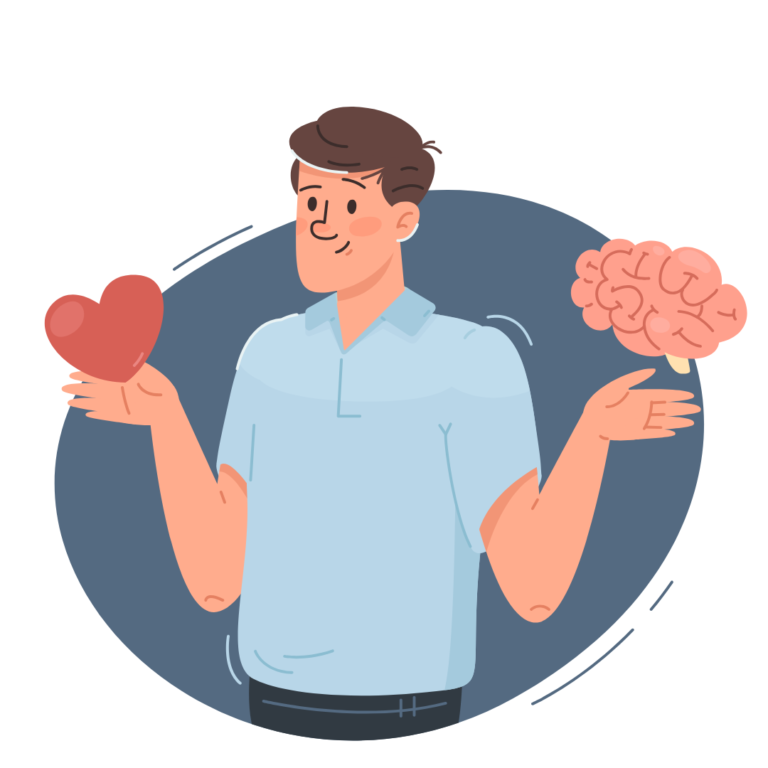Life throws us an array of emotional and social challenges, so we must improve our emotional intelligence to better help us navigate these challenges. Emotional intelligence (EI) is the ability to understand and manage your own emotions, as well as the emotions of others. This is key to building stronger relationships and navigating the complexities of life effectively. This article will explore the key components of emotional intelligence and provide practical strategies for teens to enhance their EI skills.
Understanding Emotional Intelligence
Emotional Intelligence comes with being able to recognize, understand, and manage our own emotions while also recognizing, understanding, and influencing the emotions of others. It comprises five key components:
- Self-awareness: Recognizing and understanding one’s own emotions.
- Self-regulation: Managing and controlling emotional responses.
- Motivation: Harnessing emotions to achieve goals.
- Empathy: Understanding and sharing the feelings of others.
- Social skills: Building and maintaining healthy relationships.
Developing these components can significantly enhance your ability to navigate life’s challenges.
Why Emotional Intelligence is Important for Teens
Teens with high emotional intelligence are more equipt to deal with stress, concentrate on the task ahead, and feel more energized; contributing to improved academic performance. They tend to be goal-oriented, set and meet those goals, are good time managers, and face challenges with a positive approach. Additionally, Strong social skills are an essential component of emotional intelligence. Teens with higher EI can communicate more effectively, handle differences more amicably, and forge strong, meaningful relationships. They are also better positioned to understand and empathize with others, which nurtures a sense of belonging.
Developing Self-Awareness
Emotional intelligence heavily involves self-awareness. You can improve your self-awareness in many ways. Such as journaling to track daily emotions and triggers. Reflecting on emotional patterns and reactions can help to understand the emotional landscape better. Additionally, it would be beneficial to practice mindfulness activities as this means staying in the moment, allowing you to be in touch with your feelings. Also, don’t be afraid to ask for feedback from your loved ones on how you handle emotional and stressful situations.
Enhancing Self-Regulation
Recognizing situations that lead to strong emotional reactions is the first step in managing them. After noticing the situations, you can develop healthy ways to avoid or cope with those triggers effectively. Building healthy coping mechanisms can come in the form of physical activity, hobbies, or relaxation techniques like deep breathing for emotional coping.
Cultivating Motivation
Setting goals focuses and points young people in the right direction to control their emotions by staying motivated, as it sets both personal and academic goals for them and makes plans on how to accomplish them. To find motivation, learn what interests and excites you. Hobbies and extracurricular activities give a sense of fulfillment and happiness. When goal setting, switch from negative thoughts to motivational affirmations while imagining success. That will help to stay motivated.
Be Empathetic
Developing empathy comes with active listening. Have full attention to others when they speak and reflect on what is heard to indicate understanding and build empathy. Volunteering or helping others in need creates empathy and a sense of connectivity. Also, consider other people’s perspectives in different situations to help understand their feelings. Reading fiction also increases empathy. These stories share diversified viewpoints and eventually narrate the motives behind the characters’ feelings and actions.
Building Social Skills
Practicing clear and assertive communication using “I” statements to express feelings and needs is essential for building strong relationships. Conflict resolution is also a skill to improve on for better social skills. This can bettering social interactions and relationships through identifying the root causes of conflicts and developing strategies for effectively resolving differences. Participating in group activities and projects also helps teens learn to work cooperatively with others, enhancing their social skills.
Conclusion
Emotional intelligence is a great tool that can significantly enhance a teen’s ability to navigate life’s challenges. By developing self-awareness, self-regulation, motivation, empathy, and social skills, teens can improve their mental health, build stronger relationships, and achieve academic success. Start incorporating these strategies into your daily routine today and experience the transformative benefits of emotional intelligence.
References
“What Is Emotional Intelligence and How Does It Apply to the Workplace?” Mental Health America, mhanational.org/what-emotional-intelligence-and-how-does-it-apply-workplace.


